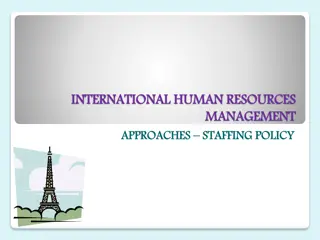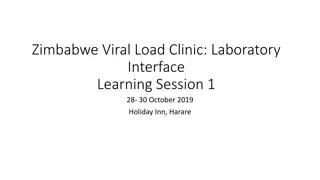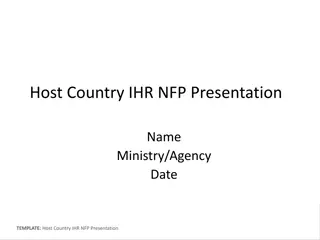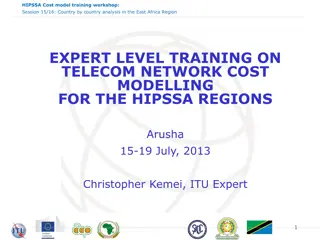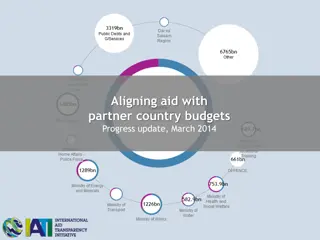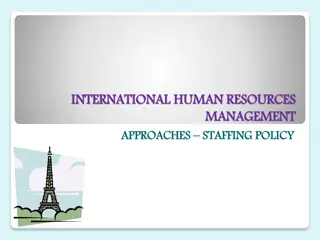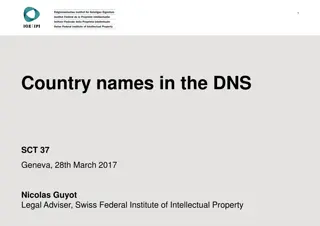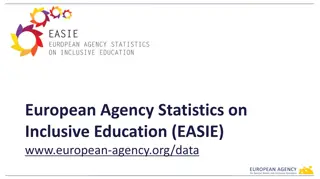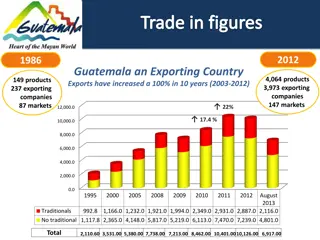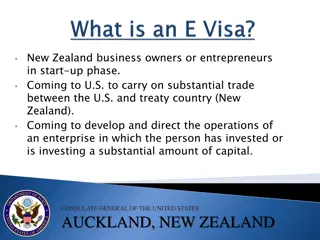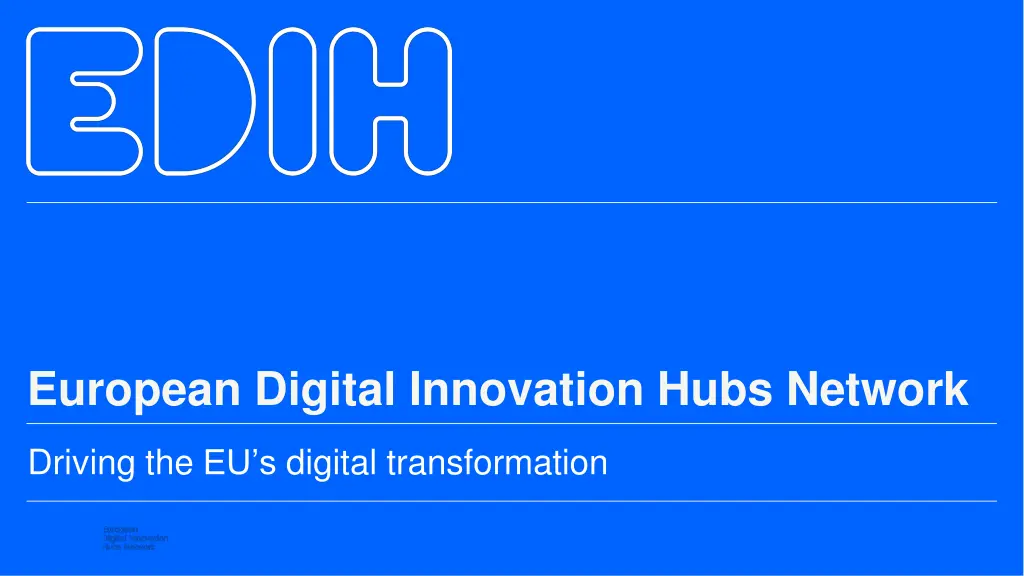
Driving Digital Transformation through European Digital Innovation Hubs Network
"Discover how Liechtenstein's European Digital Innovation Hub plays a crucial role in leading positive digital transformation, connecting various sectors through advanced technologies. Explore success stories of enabling digital company foundations across borders. Learn about the technologies and services driving innovation and sustainable growth in Liechtenstein."
Download Presentation

Please find below an Image/Link to download the presentation.
The content on the website is provided AS IS for your information and personal use only. It may not be sold, licensed, or shared on other websites without obtaining consent from the author. If you encounter any issues during the download, it is possible that the publisher has removed the file from their server.
You are allowed to download the files provided on this website for personal or commercial use, subject to the condition that they are used lawfully. All files are the property of their respective owners.
The content on the website is provided AS IS for your information and personal use only. It may not be sold, licensed, or shared on other websites without obtaining consent from the author.
E N D
Presentation Transcript
European Digital Innovation Hubs Network Driving the EU s digital transformation
Liechtenstein EDIH SoE 1/2 *EDIH 2 Members 1/2 **SoE 10 Sectors EDIHs in Liechtenstein 1 2 Plays a key role in making the country a leader in positive digital transformation, connecting people through trustworthy and transparent technologies. Serves a diverse array of sectors, demonstrating their commitment to advancing digital innovation across various industries, including manufacturing and processing, energy, transport and mobility, environment, security, public administration, financial, as well as community-led local development, and construction and assembly. *Funded under Digital Europe Programme *European Digital Innovation Hubs **Seal of Excellence (SoE)
Network overview: 2 members 1 EDIH digihub.li
Network overview: 2 members 1 SoE EDIH Digital Trust
7 Technologies Services Provide services that encompass the circular economy, ecosystem building, innovation business development, and regional development, reflecting their crucial roles in driving innovation and sustainable growth. Drive digital innovation through technologies including blockchain and distributed ledger technology (DLT) and artificial intelligence and decision support. management, SME Contribute to the diverse technology ecosystem through a range of technologies, such as the internet of things, mobility, virtual reality, cybersecurity, and big data to advance digital innovation. Provide training to help SMEs and public sector workers acquire the skills to thrive in digitalisation, while facilitating valuable knowledge exchange Liechtenstein. between the EU and https://european-digital-innovation-hubs.ec.europa.eu/home
Success stories Enabling digital company foundations across borders Service type Challenges EDIH Networking and access to innovation ecosystem Equanimity faced difficulties establishing a Liechtenstein Venture Cooperative remotely, as the registration process required physical presence and no local service providers offered support. The client sought to leverage the LVC s flexible share structure while ensuring a secure, digital identity verification process for company registration. Technologies CUSTOMER Equanimity Website Micro-sized enterprise with 1-9 employees. Solutions Artificial intelligence and decision software cloud services and data support, architecture, Digital company formation platform: developed a customised document generation platform to simplify LVC registration, with plans for full digital business formation. Electronic identity (eID) integration: implemented Liechtenstein s eID verification, making Beck Vision the first private-sector provider to offer this secure and efficient registration process. Ongoing process digitalisation: continue to eliminate the need for physical document submission, streamlining administrative efficiency and advancing Liechtenstein s digital business infrastructure.
Success stories Enabling digital company foundations across borders Thanks to EDIH DigiHub.li the SME achieved:: fully digital company formation: developed a document generator that enables the creation of all necessary documents for founding a Liechtenstein Venture Cooperative (LVC) in just 45 minutes, eliminating the need for physical presence; cross-border business facilitation: enabled state- recognised electronic identity verification, allowing international entrepreneurs to establish businesses in Liechtenstein remotely; improved banking access for LVCs: contributed insights that clarified how unregistered LVCs can open bank accounts, removing a major barrier for start-ups; expansion through referrals: facilitated ecosystem growth as the client actively promoted the solution, resulting in four additional company formations through referrals. Results and benefits Enhanced efficiency in business formation The streamlined digital registration process reduced company formation time to as little as 20 minutes, significantly cutting administrative delays. Stronger regional and cross-border integration The project aligned tax-related matters with neighbouring countries and facilitated access to the EEA, EU, and Switzerland, boosting Liechtenstein s appeal as a business hub. Lower barriers for start-ups The LVC model, combined with digital tools, eliminated capital requirements, making it easier for start-ups to launch and scale their businesses. Lessons learnt Bridging knowledge gaps is crucial Many banks and administrative offices lacked familiarity with LVC structures, creating unnecessary barriers. Educational workshops and targeted communication could help build awareness and improve adoption; Digital processes must be globally accessible An attempt to register an electronic identity via video call from Singapore failed, highlighting the need for more flexible and internationally accessible digital identity verification solutions.
Good practices Public API: the foundation for a digital ecosystem in Liechtenstein Solutions Challenges EDIH SMEs and PSOs struggle to streamline digital transformation due to fragmented systems and the lack of a unified digital infrastructure. Instead developing interfaces, digital network could enhance efficiency and connectivity. However, key challenges remained: identifying stakeholder needs, integrating them into a shared system, and defining organisational structure to sustain it. Digihub.li addressed these challenges through structured solution development. Stakeholder conducted qualitative interviews to identify pain points, revealing key challenges in verification, eID solutions, exchange, and interoperability. Development of a designed a central middleware for data exchange, featuring management, identity verification, and open data interfaces to connectivity. Establishment of a framework: proposed an integrated public- private structure solutions, open data, digital signatures, and SME-driven digital business models. research and analysis: Services Networking and access to innovation ecosystems and test before invest secure data of a individually collaborative public API MVP: Technologies Cybersecurity, data, internet services and applications, cloud services, communication network, software architecture self-sovereign data enhance digital the necessary digital ecosystem Sectors research and to standardise eID Public administration, smart city, telecommunications, financial and retail, wholesale or distribution
Good practices Public API: the foundation for a digital ecosystem in Liechtenstein Lessons learnt Results and benefits Invest in robust planning: a strategic planning phase ensures that project objectives align with long-term goals and stakeholder needs. Optimised digital business processes The public API enables secure, standardised data exchange, improving workflow efficiency for SMEs and PSOs while reducing redundancy in digital interfaces. Stronger public-private digital ecosystem The initiative fosters collaboration between SMEs, PSOs, and the public sector, ensuring a scalable and interoperable digital infrastructure that supports innovation. Cost-effective digitalisation for SMEs The shared infrastructure reduces developments, allowing businesses to implement secure, scalable, and standardised digital solutions. Adapt flexibly based on findings: an iterative approach allows adjustments to processes, scope, and solutions based on real-world insights and challenges. Leverage qualitative interviews early: engaging stakeholders through interviews helped uncover key pain points and digital infrastructure needs. the need for costly individual Ensure strategic stakeholder communication: clearly articulating objectives and processes enhances stakeholder contributions are meaningful and aligned. collaboration and ensures Recognise and expand potential early: remaining open to broader applications of the project can increase impact and scalability beyond the initial scope. Over 50 institutions (SMEs & PSOs) were surveyed, and 8 industry experts contributed insights, ensuring a comprehensive, data-driven foundation for the public API s development.





